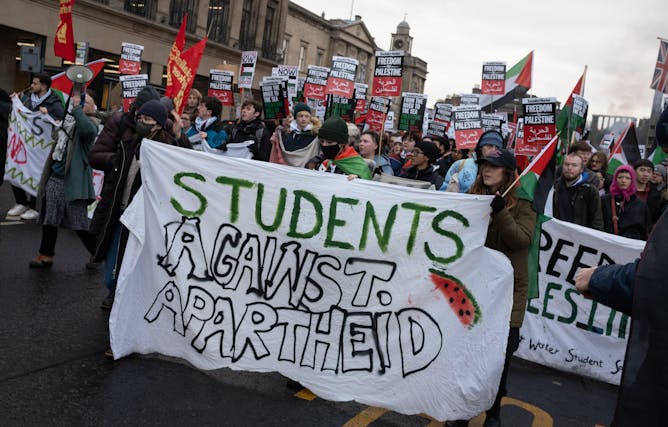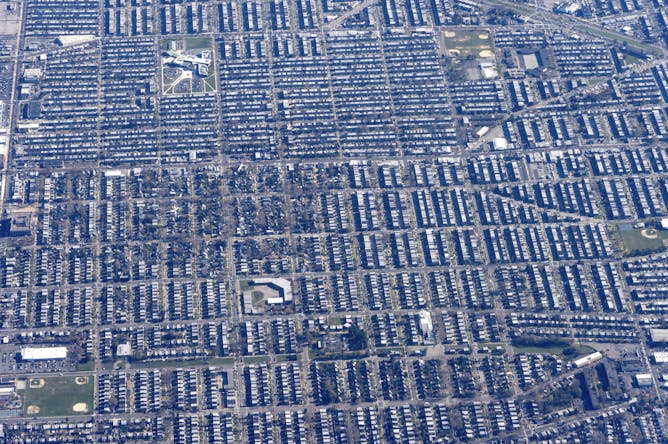|
Tensions have run high at many universities around the world since the Hamas attack on Israel on October 7 and the subsequent Israeli assault on Gaza. In the US, amid ongoing protests and solidarity marches at many campuses, the president of the University of Pennsylvania resigned last week following her answers to a hearing in Congress about antisemitism on campus.
In the first of two episodes of The Conversation Weekly podcast exploring how the war is affecting life at universities, we speak to David Mednicoff, chair of the Department of Judaic and Near Eastern Studies at the University of Massachusetts, Amherst in the US to find out what’s been happening on his campus. He told us that in the current climate for higher education, in which many American universities are under attack from outside groups, trying to foster
well-informed open debate on issues such as Israel-Palestine can feel like a political choice in itself. In the second episode, we hear a view on how the conflict is affecting academic freedom from UK-based Israeli legal scholar, Neve Gordon. Subscribe to The Conversation Weekly wherever you listen to your podcasts.
|

A pro-Palestinian march in Edinburgh in early December 2023.
jeremy sutton-hibbert / Alamy Stock Photo
Gemma Ware, The Conversation
The second of two episodes of The Conversation Weekly podcast exploring how the Israel-Gaza conflict is affecting life at universities.
|
|
|
-
Gemma Ware, The Conversation
The first of two episodes of The Conversation Weekly podcast exploring how the Israel-Gaza war is affecting life at universities.
|
|

Farzad Hashemi, The University of Texas at San Antonio; Guangqing Chi, Penn State; Lisa D. Iulo, Penn State; Ute Poerschke, Penn State
An interdisciplinary group of researchers at Penn State ran computer models on two Philadelphia census tracts. The neighborhood with more vulnerable residents was also hotter.
|
|
|
-
Ian Parmeter, Australian National University
The mistaken killing of three Israeli hostages by the Israeli Defense Forces at the weekend has substantially increased pressure on Prime Minister Benjamin Netanyahu to accept a ceasefire.
-
Dawn Garisch, University of Cape Town; Steve Reid, University of Cape Town
The benefits of creative writing are particularly important in countries where there’s a need to build a caring society and there are limited resources.
-
Janet Remmington, University of York
She reveals a range of African experiences: from traders to martial arts champions, visa overstayers to heart surgeons.
-
Steve Turton, CQUniversity Australia
Once the immediate crisis in North Queensland has subsided, authorities will need to grapple with how to deal with the ‘new normal’ of extreme weather events. The big question is: are they prepared?
-
Ignacio Cofone, McGill University
Meta’s decision to charge users for an ad-free experience still requires that people have their information collected.
-
Calder Walton, Harvard Kennedy School
Cuba gets less attention as an espionage threat than Russia or China, but is a potent player in the spy world. Its intelligence service has already penetrated the US government at least once.
-
Edward Armstrong, University of Helsinki
The Sahara Desert is green and vegetated every 21,000 years. A climate model shows why.
|
|